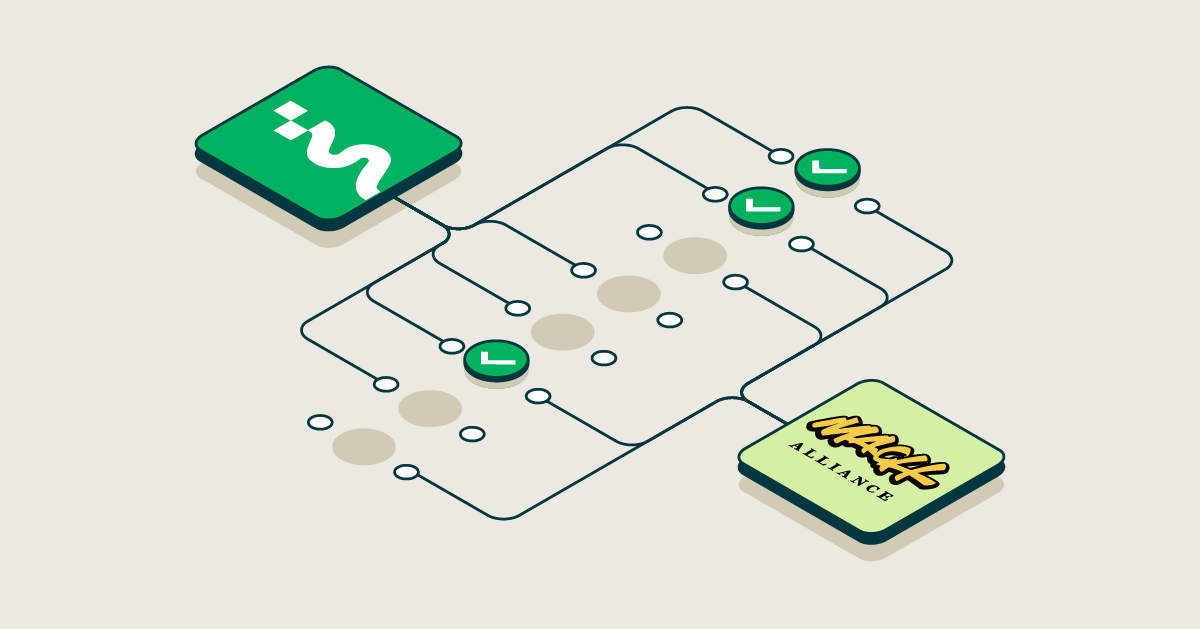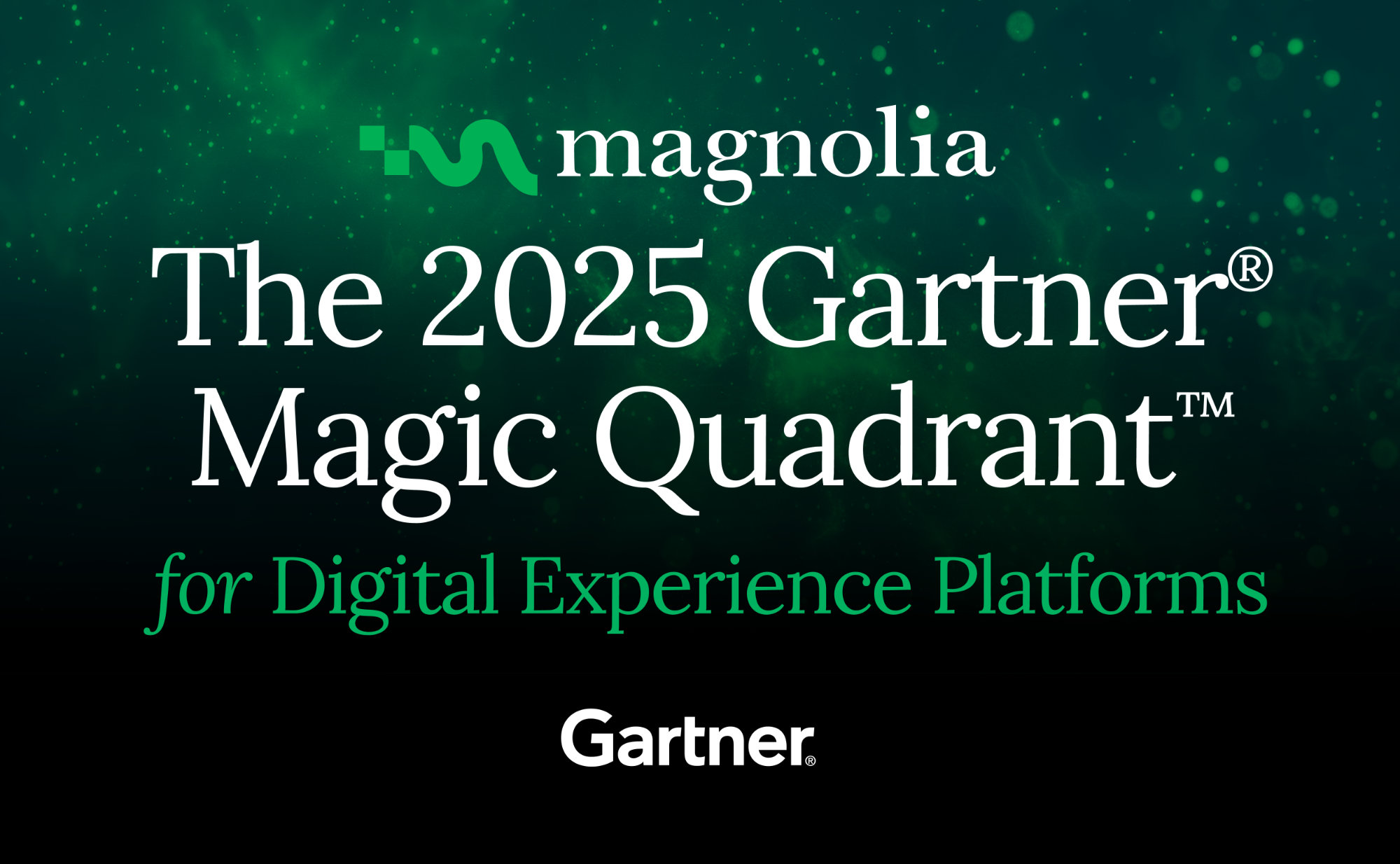- May 13, 2024
- 6 min
Magnolia and MACH: Where we agree and differ
Magnolia in action
Take 12 minutes and a coffee break to discover how Magnolia can elevate your digital experience.
Given the publication in April of Gartner’s thoughts on when to consider a MACH architecture in digital commerce, it seems a good time to outline how we at Magnolia think about the MACH Alliance given we are not - and will not - apply to become a member.
That said, we do share a lot of common ground with the MACH Alliance - an organization that promotes a set of technology design principles in the e-commerce space. In fact, many founding members of the MACH Alliance are Magnolia partners who we work closely with on numerous client projects that have been central to our rapid growth over the past few years.
We embrace many of the MACH Alliance’s core design principles. For example, we strongly agree that composability and the underlying APIs are essential for the success of modern, digital businesses. Indeed, we were pioneers of this concept long before the MACH Alliance existed. We also believe in the power of a headless approach and the tremendous opportunities that the cloud can unlock for many businesses.
However, at Magnolia, we prioritize our customers’ individual needs over strict adherence to any technology dogma. After working with many customers, over many years, we have found that a strict adoption of MACH principles is not the best approach for a number of reasons:
Someone needs to take responsibility
As Gartner has suggested, MACH is fundamentally a marketing organization designed to push the agenda of its members. That’s fine - but it means that MACH claims need to be understood in context.
It’s important to remember that while the MACH Alliance promotes its technical principles, these aren’t interoperability standards. The MACH Alliance can act as a directory for MACH tools, but there are no shared support services, guiding architectures, or even official best practices for tool interaction. So, even if all the tools you buy are MACH certified, there’s no guarantee they will work together seamlessly. This can make large-scale projects more prone to delays and overspend.
As many organizations have learned, choosing MACH-certified products is no guarantee of simple implementation. Thomas Mulreid, VP of sales at Orium, notes that MACH compliance doesn’t necessarily mean that a tech stack has been tested at any kind of scale - just that it all meets MACH standards.
At Magnolia we believe in composability at a platform level and provide a set of APIs, frameworks and blueprints to ensure the integrations are flexible enough to deliver real-world enterprise use-cases.
Customer focus vs. technical dogma
At Magnolia, we believe that customer needs and project success are far more important than technology ideology. In 2024 there’s no such thing as a “green field” implementation for large businesses. So when we engage with companies we have to work with what’s there: We need to integrate with existing systems and workflows. This requires an open, flexible technology stack that can embrace all customer platforms.
As Jono Herrington, the global digital technology lead at Converse points out, the majority of enterprises also need a radical transformation to successfully deploy a MACH solution and that simply isn’t feasible with the budgets and timelines of most modern projects.
For example, many large businesses rely on key “legacy” systems that are difficult to connect to a MACH-only stack. Enterprise resource planning, loyalty, booking, editorial, legal and stock management systems are a few good examples. The data within these systems is often critical to our customers’ competitive advantage. In our opinion, the goal of Magnolia and our integration partners should be to build a digital experience platform that leverages these platforms, not excludes them.
Similarly, a large-scale MACH approach can often require a large number of tools to procure, integrate and maintain. Managing multiple contracts adds significant administrative complexity, blurs lines of responsibility and can drive up both implementation and maintenance costs.
Deployment control matters
Adhering only to the ‘cloud-native SaaS only’ principle as defined by MACH would reduce the choice and control we offer our customers. For example, many of the MACH certified SaaS platforms are only available on a limited set of cloud services that may not fit our customer’s cloud strategy or preferences. We offer a choice of AWS, Azure, GCP, Tencent amongst others - including multi cloud capabilities. The MACH restrictions can also make it difficult for customers to comply with data residency requirements or operate effectively in certain markets, such as China.
Other organizations we work with require still greater control over their infrastructure than any vendor or public cloud can provide. Financial services, aerospace or pharmaceutical firms, for example, may require the ability to host Magnolia in their own cloud arrangements to comply with strict regulations or just to address their concerns around being too reliant on a small SaaS start-up and their investors.
At Magnolia, we will always offer deployment flexibility. We care more about supporting the business and cloud strategy of our customers than maintaining the purity of any particular cloud deployment approach.
Development culture
Similarly, the MACH requirement of using microservices everywhere presents challenges to many established businesses. And anyway, for many use cases microservices just aren’t the most practical way to build. They would require many organizations to undergo a cultural shift, effectively attempting to transform themselves into a software vendor that has access to deep architectural and development resources throughout a project lifecycle.
Even Amazon - with all of its resources and deep commitment to the MACH Alliance - has switched away from microservices for some use cases.
We aren’t arguing against microservices as an approach - in fact it’s the default architecture we use across our cloud platform - but we’ve simply found that this approach may not be the right one for many of our customers. They need a development model that will work for them, both in the project phase and in the following years of maintenance & upgrades that will be required as their businesses inevitably evolve.
Balancing developer and authoring experiences
To deliver great digital experiences, it’s essential to provide great tools to both developers and business users. The danger with a developer-led adoption of MACH standards is that there is an assumption that the implied ‘interoperability’ will answer the needs of business users. That belief is fatally flawed in all but the simplest situations.
For example, many MACH tools do their jobs well but are extremely specialized. For marketers, editors, and merchandisers, working across multiple specialized tools can be very challenging. Context switching and dealing with multiple interfaces can sap productivity and lead to more reliance on developers. This results in developers having to spend more time supporting routine publication at the expense of their more strategic projects like feature improvements.
Growing frustrations will be inevitable on both sides, as we currently observe in many enterprise-scale MACH deployments. In contrast to MACH where no single platform is responsible for the overall business user experience across the digital experience, Magnolia takes responsibility for providing a unified authoring environment. The result is that business users can create experiences in one seamless workflow, regardless of content source.
Future
We will continue to work very closely with many MACH Alliance vendors and agencies and highly value our relationships with them and we know that some businesses are happy with their MACH setups. However we also know from experience that an all-or-nothing MACH approach is often not the best one especially for larger established businesses. We will always prioritize a more pragmatic, flexible approach - taking only the best bits of MACH if you will - with a singular focus on delivering long-term digital experience success for our customers. That’s what is powering our growth and what matters far more to us than any particular technology acronym.










